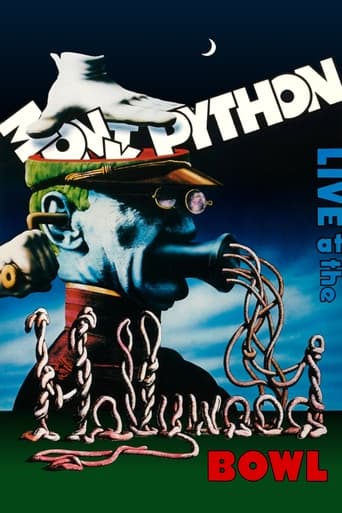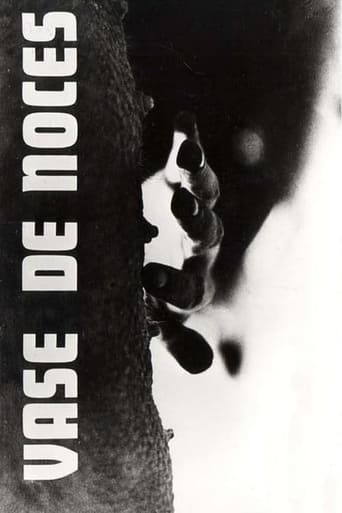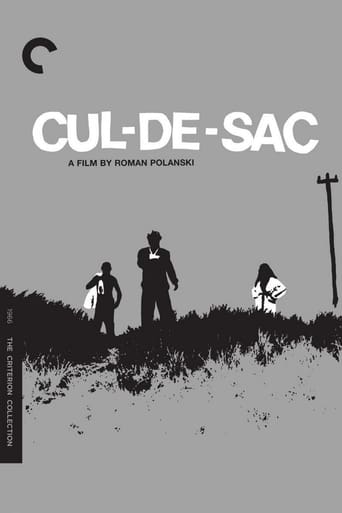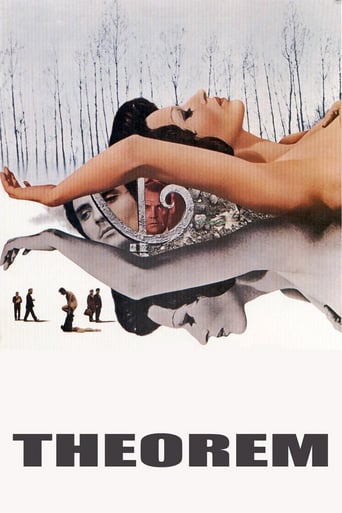


Theorem
A wealthy Italian household is turned upside down when a handsome stranger arrives, seduces every family member and then disappears. Each has an epiphany of sorts, but none can figure out who the seductive visitor was or why he came.
-
- Cast:
- Terence Stamp , Silvana Mangano , Massimo Girotti , Anne Wiazemsky , Andrés José Cruz Soublette , Laura Betti , Ninetto Davoli


Similar titles
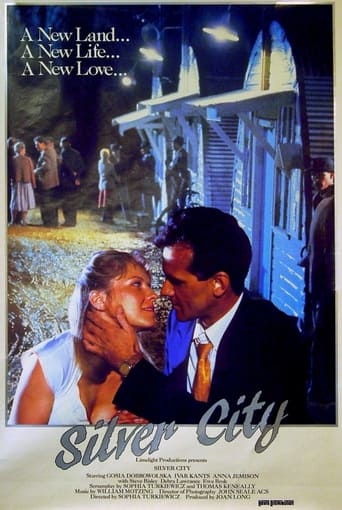





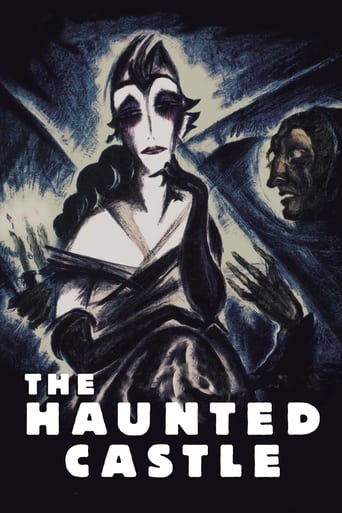
Reviews
Memorable, crazy movie
This movie was so-so. It had it's moments, but wasn't the greatest.
The film makes a home in your brain and the only cure is to see it again.
This is a small, humorous movie in some ways, but it has a huge heart. What a nice experience.
The bourgeoisie have long been a target for many of the great European film-makers. They were an object of fascination and humour for Luis Bunuel and were often portrayed as outwardly repulsive by Rainer Werner Fassbinder and Jean-Luc Godard. In Theorem, Pier Paolo Pasolini ponders whether they are beyond hope and redemption, so far removed from our society that they are now of a different species altogether. The film begins outside of a factory, where the workers gather outside trying to understand why the owner has fled, leaving the entire company in the hands of its employees. They seem angry while a news reporter tries to comprehend the situation.In an upper-class Milan suburb, a wealthy family are informed of the imminent arrival of a stranger by a enthusiastic postman. The man, known only as the Visitor (Terence Stamp), suddenly appears at their home seemingly without reason, and immediately begins to affect the family and their maid. He stops the maid (Laura Betti) from committing suicide, soothes the son (Andres Jose Cruz Soblette) of his anxieties, eases the fears of the opposite sex of the daughter (Anne Wiazemsky), seduces the sexually repressed mother (Silvana Mangano), and nurses the seriously ill father (Massimo Girotti) back to health. He vanishes as quickly as he appeared, leaving his subjects in various states of bewilderment and enlightenment.Is the man God, the devil, or both? Ultimately, this question doesn't really matter. It's clear that the Stranger is a divine presence, but it's the effect he has on the unwitting family that is the most fascinating. The maid, a humble woman of low birth, returns to her village and is worshipped as a saint, and even appears to levitate at one point. The bourgeoisie family, however, start to slowly implode, climaxing with the father stripping himself naked and wandering into a desolate land. The Visitor seems to unlock their potential, only they - the maid aside - are unable to handle such divinity brought to them on a human level. The final scene includes a scream that may be ecstasy or pure terror, but Theorem doesn't make it that easy to unravel. This is a complex and fascinating work by one of the Italian masters, and one that will have you trying to pull apart its themes days after you have watched it.
Pier Paolo Pasolini's "Teorema" had me dumbfounded! It was one of those rare instances where I was unable to formulate a clear opinion of what I thought about it. For one, this minimalist picture from the controversial filmmaker has "art-house" written all over it. Yes, there is extreme minimalism, very little dialog (it seems the number of actual spoken words in the film is about 923!). This almost silent film is allegorical rife with symbolism and religious connotations, and may not be a very interesting subject matter for those looking at mainstream cinema, that is for sure! Terence Stamp is "The Visitor", a mysterious stranger who once visits the mansion of a rich family of four. The man of the house is Paolo, a rich businessman who owns a factory, and then there's his awkward son, a daughter, a beautiful wife who is sexually repressed and a scary-looking maid. In the next few days that pass, this visitor has sexual encounters with each of the inhabitants of the house! In a way, he "seduces" them. And almost as suddenly as he appears, he soon takes leave of them, leaving them in a state like never before! All of these people he "touched" exhibit marked changes in their lives, of a different level altogether! The "consequences" forms the crux of this strange film and paves way for detailed discussion! What makes Pasolini's film so important is the daring concept that Pasolini presents to his viewers with a script set in the contemporary world. From what I understand, The visitor is supposed to be a God-send or an angel who influences the members of the house in one way or another. Why "sexually" is a good question, but that depends on how you see it. Is it the touch of God, or the Devil's seduction? Perhaps it is symbolic of a "close encounter with God"? So what exactly does God do to these bourgeois individuals? Apparently he makes them see beyond their pretentious cocooned life. They all go through a self-realization phase, which they all confess one by one to the Visitor when it is time for him to leave. But he isn't there to see the changes. Are these changes always positive? Does being "blessed" always lead to happiness? Or is there another side to it? Pasolini, through his seemingly simple yet highly complex allegory poses these ambiguous questions, which likely polarized his audiences, based on their religious beliefs! Being an atheist I wasn't particularly offended or overwhelmed with the subject, but I was definitely intrigued by how drastically different this film and its viewpoint is! Pasolini's technique of story-telling is poetic! It is almost like Pasolini deliberately chose the visual style as exists in the film to give it a meditative form. Long takes, solitude, mostly gentle atmosphere, intermittent random scenes of a vast empty desert, the presence of a radiant light just before the visitor appears, all tactfully done! The visuals are also enchanting, the cinematography is beautiful, with the colours changing from sepia (in the beginning during the introduction of the characters, perhaps to show their 'ordinary' life?) to vividly colourful (a marked change with the introduction of the "visitor"?). It is then, mostly on the technical front and the handling of the film with its layered theme that makes "Teorema" most watchable.Where it falters is in some (only a couple or three) haphazard sequences here and there, and in the tepid acting from the actors playing the son and the daughter. I don't know if it was intentional but the daughter, Odetta (Anne Wiazemsky) who also appeared in Robert Bresson's "Au Hasard Balthazar" delivers what could be one of the most wooden acting performances I've seen! At one point it even becomes slightly apparent that she is reading her lines from cue cards!! The son, Pietro is played by Andrés José Cruz Soublette also seems somewhat awkward, but maybe his acting reflects his character who behaves like that owing to being a closeted homosexual! The finest acting then comes from Terence Stamp, even though he doesn't have much to do except give mysterious smiles once in a while and appear compassionate! A close second best actor in the film is the beautiful Silvana Magnano, the lady of the house. Her Lucia's perplexed state of mind is wonderfully portrayed by the actress. Also impressive is Laura Betti as Emilia, the maid. Laura looks and acts the weird Emilia quite earnestly.But how does one eventually evaluate and rate something as flummoxing as "Teorema"? Why is it even called that anyway? ('Teorema' means 'Theorem') There are views that the structure of the film itself and the psychological transformation of all characters follow a single formulaic structure! The film doesn't boast of great acting, neither is it an intimate character portrait. Not all characters are dug deep into. The subject matter is not what one would fall in love with, but it sure is extremely interesting! But in spite of this, there is something about "Teorema" that makes it worthwhile. While the visuals and the characters haunt your memory long after the film is over, the happenings in the narrative will give you something to ponder about. It is not a film one may go ga-ga about, but can one ever forget having watched "Teorema"? Hell, no! Score: 8/10.
The prologue of this movie is actually the epilogue. Pasolini emphasizes the artistic freedom to turn the world inside out and fictionally destroy all conventions. In a pseudo-documentary vignette intellectuals debate with the new industrialists {formerly "the workers"} and future plutocrats as to whether they will become subsumed by the bourgeoisie as a result of being inevitably corrupted by the trappings of wealth and power.In the jump between the main story and the prologue a motif, {repeated throughout the entire movie}, of the Hebrews wandering in the wilderness, hoping to find the Promised Land, is insertedWe are introduced to the nuclear family in its bourgeois construct as an Industrialist with huge factories and a magnificent Milanese villa, his trophy wife, a beautiful female, sybaritic, vacuous and fashionably attired and coiffured, as befits her class, their son Pietro and daughter Odetta. All of them are illustrated as typically bourgeois, self-satisfied and complacently entitled to lead their lives empty of meaning. All bourgeois households of their class have servants and the religious peasant Amelia runs their household.Pasolini then has a metamorphic agent, the boyish Terence Stamp, enter into their idyll. A cypher for the creative force of the auteur Pasolini himself, "the boy" insinuates himself into the individual lives of each of the five personae in the household. First, for no explicable reason other than the sexiness of his appearance, {Pasolini's homosexuality focuses on Stamp's prettiness and young slender physique}. Stamp's personality is quite reserved and introverted, so although he is seen to be reading the iconic gay poet Rimbaud, and playing the fool in a boyish way, we are never quite convinced of any intellectual passion. The five seductions are all carnal, starting with the peasant Amelia, who is overwhelmed by Stamp's "aura" and, initially trying to avoid her "fall" by attempting suicide, succumbs to her desire for sexual congress with "the boy". In quick succession "the boy" inducts the younger son into the homosexual life. Here the thought occurs that a typical initiation into homosexuality by the older man would most likely be Pasolini's personal narrative, especially, as the story develops we see the son overcome his anguish by sublimating into the arts, as Pasolini himself, did. Next "the boy" is seduced by the mother and then the daughter pulls him into the bedroom. Finally the heterosexual father {in a typical gay fantasy "all straight men are potentially gay" } is seduced by "the boy". Having performed his role of alchemical mischief we are introduced to Tolstoy's novella "The Death Of Ivan Ilyich" when as if enacting the final chapter, the father falls ill and "the boy' takes his legs and holds them above his head giving him relief - it should be noted that Nabakov lectured on this work stating that Tolstoy considered bourgeois hypocrisy to be a moral death or suicide of the soul.Then, suddenly "the boy" - the revolutionary agent of transformation - announces his abrupt departure {this takes place almost exactly half way into the movie}. Like the aftermath of a bad L.S.D. trip, {Pasolini created this movie in 1967 at the height of the 60's revolution}, the confusion and dismay of the five individuals are the necessary results of picking up the pieces, and living a life with new values, and the meaninglessness of the past.Of the five the most personal is the son Pietro, who leaves home to take the path of the artist {Rimbaud's calling} and become a painter {deeply inspired by a coffee table art book of Francis Bacon}. He muses that now that his past delusions of normality were shattered by his realization of his homosexuality, he must embrace his difference and become a creative power himself. He becomes a painter and paints on glass reminiscent of Duchamp's "Bride Stripped Bare" - he goes through many changes and humiliations, eventually restoring his equilibrium and health, by realizing the inconsequence of his life in relation to the universe. Here you have Pasolini's personal odyssey integrated into the story.As to the other players, Amelia the servant returns to her country roots, where she becomes an austere penitent, and performs the Catholic miracle of levitation, only to be buried by an old peasant woman {played by Pasolini's mother} and once again with reference to Tolstoy's "Death of Ivan Ilyich" she declares that she is not dying but acting out of sympathy for those that are still living in moral death, aka the bourgeoisie. The mother in true homosexual style becomes a woman driven to find young boys { as in gay "cottaging", rent-boys, etc,}, and has anonymous sex with them. We leave her in a state of ungratified anguish. Odetta, the daughter {described by her mother as "caught up in the Cult of Family"}, allows her life force to seep away, while the father gives away his factories, and strips himself naked, ending up like his wife, wandering in the wilderness with no hope of finding the Promised Land.Another peculiarity of this beautifully framed cinema is Pasolini's gay framing of the male crotch which is in contrast to the usual Hollywood focus on the female mammary, buttocks and legs. There is also some clothing fetishism with the camera lovingly gazing at the male Y-fronts. {underpants}At the end of the explication of a theorem "Q.E.D." is affixed "that which has been demonstrated". I recommend this movie to those that are interested in the art of the 60's, gay art, revolutionary politics, and Surrealism in cinema. Its a mind blowing experience!
It is like the sequel of Pasolini's "Gospel According to Saint Matthew". It is a direct transposition of that young man who is bringing love to the world in the class-struggle-ridden city of Milano. If love came to a bourgeois family what would happen? The mother would discover what she has never experienced and she would become an insatiable love seeking, we mean of course sex chasing, woman picking young students in the streets, male of course, to have a quick experience no matter where, no matter how, provided it is quick and complete.The daughter would just get catatonic after the discovery of that physical love she did not know before and she can't imagine with anyone else after having had that relation with the angel of love, the archangel Gabriel of course. She will end up being taken away to some institution.The son will have discovered the love he was looking for but that makes him different and he does not want to be different, so he will just promote his difference to the status of art and he will start painting beautiful abstract things with no resemblance to anything at all, in one word his own desire for the forbidden in society but a dream that is allowed by that angel of love, the archangel Gabriel of course.The maid will start eating stinging nettles and making miracles, floating in mid air over the roof and being worshipped as a saint able to deliver the cure to all evils. And that will have to stop one day and on that day she will have herself buried in some kind of building site to disappear in her own tears under tower blocks.Finally the father will be the one who shows the way to salvation. He will get rid of his factory and will give it to the workers. The class struggle will win and the workers will be able to establish the dictatorship of the proletariat, a hammer and a sickle, or vice versa in Italy. And then he will be able to answer the call of some young male well endowed angel and to undress in Milano's main train station, get rid of all superficial appearances and finally follow his angel of love into the desert, yes the desert, because that's all there is for the bourgeoisie and then he will realize his mistake, he will realize one must never yield to class struggle because it is an impasse, but all the same the command of Jesus to the rich to get rid of their riches and distribute them to the poor and then follow him is a blind alley, an alley for the blind, an alley that leads nowhere at all except perdition.Just like Jesus brought love to Jerusalem and ended up on the cross, betrayed by his own disciple, capitalism is an impasse but negating capitalism is another impasse. There is no way out of that vision of society cut in too without any love.And that's why the film has aged tremendously. Class struggle or even social war, liberation wars that end up in pure terrorism, the belief that the world can be cut in two antagonistic halves lead to nowhere. It is a myth, it is a dream, not even a utopia because it does not bring liberation but it brings totalitarianism, dictatorship, terrorism, including the civilized terrorism of that new age theory that society is a set of interconnected networks and it is enough to drop a stone, or a bomb, in one nodal point to paralyze the whole system, like blocking the flow of gas and diesel, to bring society dons on its knees in about four weeks.The four weeks that are supposed to shake the world and end up in failure and blood or frustration like with the Tamil Tigers, the FARCs, Ben Laden, the ETA in Basque country, and all other pirates in the world. The world is not divided in two antagonistic halves. To believe that is to lead everyone to the desert, the absolute waterless, cool-less, food-less desert and not for forty days but forever and ever. By the way that vision of Jesus and Christendom is absolutely old fashioned, passé, dead.Pasolini's message in 1968 was absolutely dramatic and realistically pessimistic. How could anyone believe the extreme communistic, Trotskyite, anarchistic movements were going to try to take over and some will support that, not seeing it is pure feudalism and these new heroes are nothing but war lords. And when they try to behave like professional trade-union leaders they become amateurish generals of social war, class against class.Dr Jacques COULARDEAU, University Paris 1 Pantheon Sorbonne, University Paris 8 Saint Denis, University Paris 12 Créteil, CEGID


